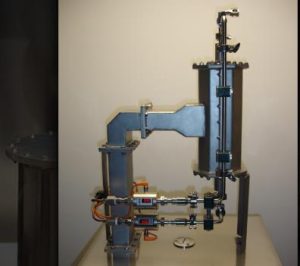How Is Microwave Technology Used in Industrial Applications?
Microwave technology, known for its efficiency and precision, has found extensive applications in various industrial sectors. Its ability to provide rapid and uniform heating makes it invaluable for processes ranging from food production to chemical processing. This article explores the specific ways in which microwave technology is utilized in industrial applications, highlighting its advantages and diverse uses.

Food Processing
Microwave technology revolutionizes the food processing industry by providing rapid and uniform heating. This is crucial for processes such as drying, pasteurization, and sterilization, which require precise temperature control to ensure product quality and safety.
Drying
Microwave drying is significantly faster than conventional methods. Traditional drying can take hours or even days, whereas microwave drying can be completed in minutes. This speed not only improves efficiency but also helps in retaining the nutritional value and sensory properties of food products. For example, microwave drying can reduce the moisture content of fruits and vegetables from 80% to 5% in less than an hour, compared to several hours with hot air drying.
Pasteurization and Sterilization
Microwave pasteurization and sterilization are effective at killing pathogens without compromising the food's quality. Unlike conventional methods, which can degrade taste and texture, microwave processing preserves these attributes. This is particularly beneficial for ready-to-eat meals and dairy products, where maintaining quality is critical.
Chemical Processing
In the chemical industry, microwave technology enhances the efficiency of synthesis and material treatment processes. Its precise heating capabilities allow for faster reactions and higher yields, making it ideal for producing high-value chemicals and pharmaceuticals.
Chemical Synthesis
Microwave-assisted chemical synthesis accelerates reaction rates and improves product purity. For instance, in the production of fine chemicals and pharmaceuticals, microwave synthesis can reduce reaction times from several hours to a few minutes, increasing productivity and reducing energy consumption.
Material Treatment
Microwave technology is used for curing polymers and composites. This method provides uniform heating, which improves the material properties and reduces processing times. In the production of advanced composites, microwave curing can enhance strength and durability, making it a preferred method in aerospace and automotive industries.
Waste Treatment and Recycling
Microwave technology is increasingly used in waste treatment and recycling processes. It offers efficient and environmentally friendly solutions for managing hazardous and non-hazardous waste.
Medical Waste Treatment
Microwave treatment of medical waste provides a safe and effective method for sterilization. This process reduces the volume of waste and neutralizes pathogens, making it safer for disposal. Compared to traditional incineration, microwave treatment is faster and produces fewer harmful emissions.
Plastic Recycling
Microwave technology can assist in the recycling of plastics by selectively heating and breaking down polymers. This process can be more energy-efficient than conventional methods and helps in recovering valuable materials from waste plastics. For example, microwave-assisted pyrolysis can convert plastic waste into useful products like fuel and raw materials for new plastic production.
Textile Industry
The textile industry benefits from microwave technology in processes such as dyeing and drying. Microwaves provide uniform heating, which ensures consistent results and improves efficiency.
Dyeing
Microwave dyeing achieves uniform color penetration and reduces processing times. This method is environmentally friendly as it typically requires less water and energy compared to conventional dyeing processes. For instance, microwave dyeing can complete the process in 20-30 minutes, compared to several hours with traditional methods.
Drying
Microwave drying of textiles is faster and more energy-efficient. This process prevents issues like shrinkage and distortion, maintaining the quality of fabrics. Microwave drying can reduce drying times from hours to minutes, significantly increasing production efficiency.
The versatility and efficiency of microwave industrial technology make it a valuable tool across various sectors. From enhancing food safety and quality to advancing chemical synthesis and improving waste management, microwave technology is indispensable in modern industrial applications.